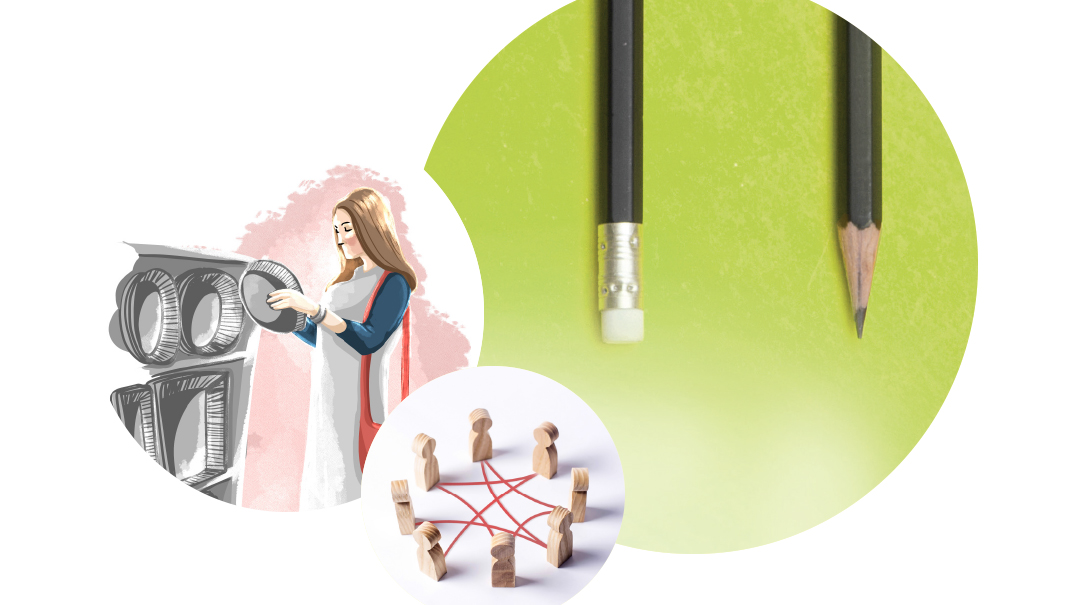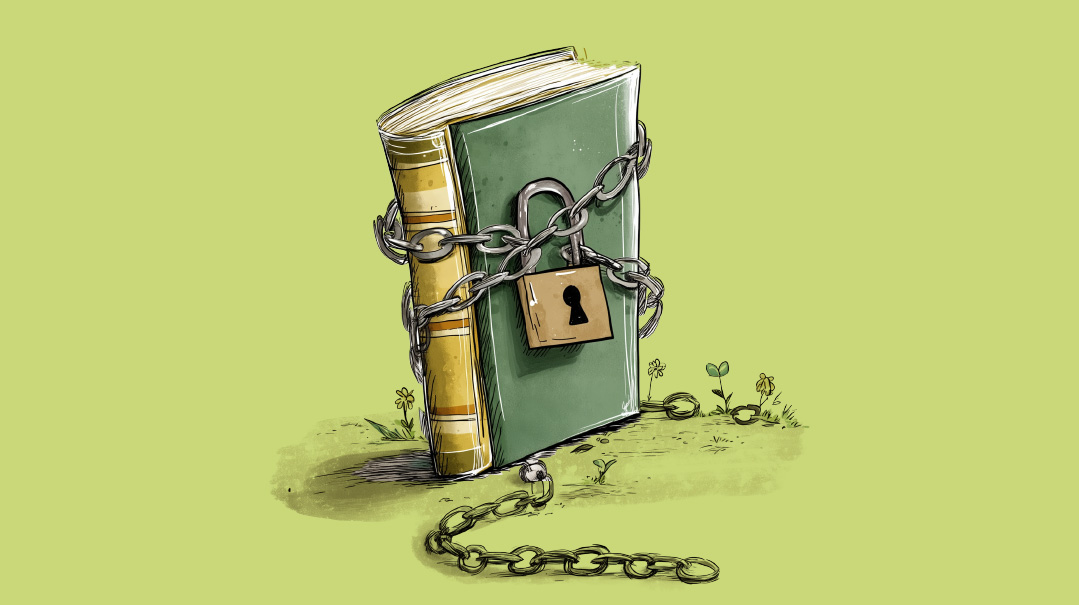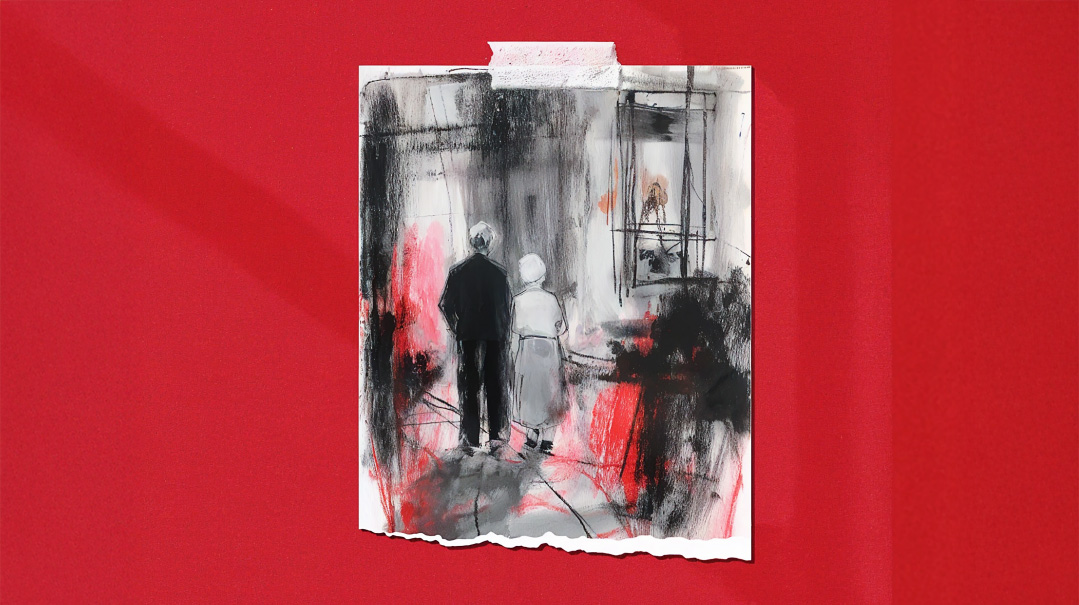Family First Inbox: Issue 751

"Parents, if your son or daughter has any issues, do everyone (especially yourself) a favor and be open with the other side"

Lesson of Love [Daddy’s Little Girl / Issue 750]
I was so touched by Shira Yehudit Djalilmand’s incredible story about her father. He sounds like he was a very special person. I really felt her pain over the loss of her father, especially with the challenges of being a convert. I was both crying and cheering for her when she was able to attend her father’s service, and when she found out that she could do mitzvos here to help her father in Shamayim.
It’s not easy for parents when their child chooses a path different from the one that they were raised in. I’m a baalas teshuvah, and my parents were initially pained that I chose to raise my children in a different path. But they love and accept me, and we have a wonderful relationship. My kids call them frequently (they live far from us) and the lifestyle differences make no difference in our love for each other.
Shira’s father is especially amazing for loving and accepting his child for who she is and embracing her as a Jew. It is easy to be frum and love our frum children. It is much harder to love and accept our children who have strayed from us, either because they are more or less religious than we are. Let us all take a lesson from Shira’s father on how to love and embrace our children regardless of how they live their lives. I am going to give tzedakah today in the merit of Michael ben Robert.
Shira, thank you for sharing your story with us. We can all learn a great deal from you and from your father.
Liz Rothstein
Baltimore, Maryland
No Excuse for These Calls [Words Unspoken / Issue 749]
Your piece published this week in the Words Unspoken column is a letter long overdue. The problem addressed is a prevalent issue, especially when the reference is a single girl. For some reason, mothers of boys find it 100 percent permissible to barrage the girl with questions, some of them bordering on extremely personal, since, after all, “she’s single.”
I’m a single in my late twenties who’s answered countless phone calls. But I could count on one hand the amount of times I hung up the phone feeling respected and not taken advantage of. From speaking with friends, this phenomenon is not unique, nor is it appreciated.
So please, don’t force me into answering questions about my friend that I don’t want to, as I guarantee you that if I called you up asking if your sister would wear a cap if she went hiking, and if yes, what color and brand, you would hang up the phone instantly. There is no excuse for harassing someone for information that she clearly doesn’t want to provide. On behalf of all of us, thank you.
A Single Who’s Had Enough
They’re Not Evil [Words Unspoken / Issue 749]
I was surprised to read the Words Unspoken written by a girl who fields shidduch calls for her friends. As someone who’s been listed as a reference on many résumés over the years, and at this point has probably given information dozens if not hundreds of times, I have rarely encountered the prying, rude prospective mothers-in-law that this girl seems to speak to frequently.
While I definitely have had my share of questions that made me roll my eyes, I find for the most part that mothers of boys are genuinely nice, down-to-earth human beings (gasp!) who are just trying to do their best for their sons. I have never had someone bluntly ask me about my friends’ flaws, although I do think a valid (and useful) way to phrase that is something along the lines of, “Of course everyone has their weak points. How does your friend react when she encounters a challenge or disappointment?”
As for asking what hasn’t worked for this single in the past (a question I beg my mother to ask a boy’s references, especially if he’s been in shidduchim for a while), this is also, in my opinion, a perfectly valid way to gauge what the single is looking for. There is no need to go into the private gory details (which the mother probably has no interest in hearing anyway); she just wants to know if there is a specific pattern or set of traits that does not work for this girl, and possibly spare her the trouble of dating yet another mismatch.
Maybe I’m naive (or my friends’ prospective mothers-in-law are just more normal!) but I really do not think these women are evil, intrusive villains. And if they do occasionally overstep a boundary, I would chalk it up to the stress and frustration of making call after call just to hear about how “amaaaazing” the girl in question is, while not actually being able to glean any real information.
S.B.
Please Speak Up [Words Unspoken / Issue 749]
If you get emotional easily, please don’t read my letter.
I got married some time ago to a girl who to the world seemed 100 percent normal. Starting from the chasunah, I realized something was terribly wrong with her. I kept my mouth shut for three months, hoping she’d change. Little did I realize that my new wife was suffering from severe mental health issues. I grew up in a very healthy, happy family and had no previous exposure to issues like this.
I reached out to Relief (they were an incredible help) but after my wife met with professionals, they let me know that they didn’t know if she had a chance to be healthy. The rabbanim I consulted were of the same opinion as well. To say it simply, I’m suffering tremendously.
The reason I’m even recounting my tzaros is because my wife admitted to me that during the engagement period she knew that this was something she should reveal to me. But her mother held her back from doing so, fearing I’d break off the shidduch.
Parents, if your son or daughter has any issues, do everyone (especially yourself) a favor and be open with the other side. If you have any questions, at least discuss them with daas Torah. Trust me, if you don’t, it will backfire.
Please note that my in-laws are wonderful people who severely underestimated their daughter’s mental health. Don’t be naive and think these stories only happen to crazy people. Don’t assume marriage will solve anything.
May Klal Yisrael only have the happiest and healthiest batei Yisrael.
A Broken Yungerman
Not Your Business [Touch Base / Issue 749]
Batya Weinberg has become one of my favorite Family First columnists — so engaging and funny; unapologetically straight as an arrow; relevant and contemporary topics; and sources, sources, and more sources. What a perfect combination!
Her last column on Eretz Yisrael was my favorite so far. I really related to the woman who was looking to find balance in her daas Torah telling her that it was not the right thing to do to move to Eretz Yisrael right now, but who says that her heart is there and she doesn’t want to feel overly comfortable in America. I applaud her for following her rav and doing ratzon Hashem in the way that is proper for her personal situation.
The mitzvah of living in Eretz Yisrael is dependent on many personal factors. Yet I have found that some Americans who have made aliyah have very strong opinions — which they often share — about those Jews who remain in chutz l’Aretz. Some who have made the amazing move become suddenly quite judgmental (verbally or otherwise) toward their non-aliyah counterparts, or toward chutznikim who live in Israel and then “move back.”
We all have our journeys. Just as I know nothing about yours, you know nothing about mine. Grilling me and putting me on the defensive does not mean you will actually get the real answers about why I’m living in America. Nor do you need them — it’s just not your business.
Hoping to meet all Jews soon in Yerushalayim habenuyah.
R.K.
Who Can Help? [On Your Mark / Issue 749]
In “On Your Mark”, Jessica Tsur mentions the difficulty of finding the funds necessary to keep afloat a support group for women struggling with various forms of mental illness. Everyone talks about how far we’ve come in accepting the concept of mental illness as well as the individuals suffering, yet somehow the financial support for it doesn’t exist.
There are organizations that fund insurance and treatment for other (physical) illnesses, yet not only do most good mental health professionals not accept insurance, there are no groups or organizations (or maybe one or two for very specific diagnosis or age groups) to help fund the costly and often long-term treatment for those who suffer from mental health conditions. And these interventions can and do help!
Perhaps there is a reader with influence or connections who can step in to create an organization that can bring change to this unfortunate reality.
Hoping for Change
Not Nachas Machines [Family Reflections: Disappointed / Issue 749]
I would like to add something to Sarah Chana Radcliffe’s fabulous article about parents struggling with their “challenging” children. As one typical mother says, “I hate to say this but I’m embarrassed of my own son. My friends’ kids are all successful, and their parents are shepping nachas.”
As parents, we feel that we invest so much physical and emotional work into our kids, and as a result we feel we should get repaid with some nachas. This is an incorrect way of thinking. I once heard a speaker say, “Hashem gives parents children not to bring nachas to their parents, but for their parents to bring out the best in their children.” This quote changed my perspective on parenting!
When your kid comes home with a report card, instead of thinking, B minus?! think, “Did my child do their best?” If they did — that’s nachas! A parent shouldn’t feel like a failure if they’re not seeing nachas now. Ask yourself, “What can I do to bring this child to his/her success? Is there a talent we can improve — like art, music, baking, etc?”
Empowering our children with something they’re good at ultimately brings out the best in them — pure nachas for the parents!
Anonymous
Our Own Journeys [Family Reflections: Disappointed / Issue 749]
Thank you, Sarah Chana Radcliffe, for so poignantly describing children who are on a different journey than their families, or children struggling, as “special-needs” children. As she describes these children, they are difficult, but do not have a diagnosis.
But they do have special needs, and besides mental health issues or abuse, their needs are sometimes due to their heightened sensitivity, or perhaps intelligence, which leads to deeper questioning in their yearning to understand. Calling them children with special needs will hopefully encourage a greater understanding of these children, as well as a decrease in looking at them with superiority or at their families with pity.
Although we often think and assume that our children will be similar to us, their neshamos are each created to travel through their individual journey, which may be in reality quite different than what we imagined. It is not a reflection of us. Hashem created each neshamah, regardless of how the person looks or what he does.
In addition, Hashem created the neshamos of the parents and families of these children with their own journeys. Part of that journey includes being a part of the lives of these children with special needs. Just as families of children with physical and mental special needs are often told they’ve been handpicked, so are families with challenging children. It is only our job to love and support and help these neshamos as best as possible, without feeling guilty or responsible for their actions, as they too are Hashem’s children.
R.
Brooklyn, NY
Busy Years — But Worthwhile [Lifetakes and Editor’s Letter / Issue 749]
Thank you, Penina Steinbruch and Bassi Gruen, for describing how much you miss the young children stage. This did so much for those of us who are there right now and can gain from the perspective of those just a bit ahead on the road. My head knows that the years of having little kids and running after them are so special, but the messages I sometimes get from people are far from encouraging.
As working women, we see and hear professional attitudes toward family and children, and some of it threatens to stick. Intellectually, I know that nothing compares in worth to the eternal investment in my little guys, all close in age and cute as can be, who keep me up at night and are responsible for my super-hectic mornings and life in general.
Emotionally, the chizuk like that which came from Family First this week is so important; it takes a lot of internal work and focus to stay on point. Inspirational pieces like these, for me at least, are a first defense against an outside culture very not understanding of my lifestyle and priorities.
Thank you, Bassi and Penina, for a reminder that one day, when the fingerprints are wiped off the mirrors, the Magnatiles put away for good, the Bubby crystal out on the mantelpiece, we’re left with beautiful wistful memories... and hopefully no regrets.
Z.B.F.
My Flashback [Flashback / Issue 747]
Over the years, I’ve clipped and saved and shared countless Lifetakes, Musings, and so on that resonated with me.
Recently, your Flashback that quoted an old Lifetakes of Tzipora Shub’s really spoke to me. I have countless rolling pins, stainless steel bowls and Kitchen Aid attachments in my possession. They belonged to my nonagenarian mother (who is sadly living with advanced stages of dementia).
How I wish I had taken some of the many “sheet pans” she owned (which coincidentally seem to be the latest trend). Marie Kondo will never be able to convince me that these are worth throwing out.
As Tzipora Shub wrote, to me these are symbolic of so much more. They are the link to my mother’s former self, creating all her delicacies to perfection.
While I’m at it, I’d like to flash back to a couple of oldies, which I can read and reread with tears in my eyes: “A Split in the Road,” as told to Faigy Schonfeld, and “Closure” by Devora Kaufman, both of which have particular resonance with my life.
I come from a family of 11, all born in the US to survivor parents. My older sister, Chanie, was a smart, intelligent, well-liked, beautiful soul. The rest of my sisters and I all married in succession and were blessed with a child at the time we celebrated our first anniversary. Chanie, however, waited 15 years for the one and only child she bore.
Yet we never felt the need to tiptoe on eggshells around her. While her face definitely shone brighter after her ben yachid was born, for the many years before his arrival, our simchahs were her simchahs. It was not surprising that when my daughter was four weeks old and I had a close family wedding to attend, she took my baby — cradle, formula, and all — for the night, saying she felt privileged to do so.
Another incident that highlights this trait of Chanie’s is the time she collected money for a baby gift when my oldest niece gave birth to her first — before she herself was a mother. Chanie was a friend of Mrs. Brany Rosen, of A TIME, and was a volunteer employee when the organization was in its fledgling state.
In later years she ran her own little underground support network helping couples struggling with fertility by administering shots and chizuk. Unfortunately, from the time her son was just two years old, she suffered one medical challenge after the other — facing all of them with unwavering emunah. She was niftar in December 2014, at the age of 52, from cancer.
Over the years, countless articles have been published with the same sentiment as “Closure,” by a woman with infertility who shared how hard simchahs were when all of the talk seemed to revolve around babies.
I hope I’m not insensitive, but I align more with the letter writer who advised everyone to focus on the blessings in their life. Maybe because we were fortunate to have had Chanie, who cherished every day with simchas hachayim.
She vehemently disputed the oft-repeated remark that when you have one child, you want a second more badly — no, she would say, one child is a gift from Hashem and we ought to be grateful. Nothing should be taken for granted! Why should the nisayon of being childless give one right to be angry at the whole world? Sadly, I often feel like there is hate between the lines.
Chanie unfortunately did not walk her son down to the chuppah; she passed away when he was 17 years old.
As I sat down to write this letter, he was celebrating the pidyon haben of his own son, Eliyahu. Eliyahu was adorned in a lovely hand-knitted outfit that Chanie had the foresight to create, imbuing love in each stitch.
T. Spitzer
(Originally featured in Family First, Issue 751)
Oops! We could not locate your form.







